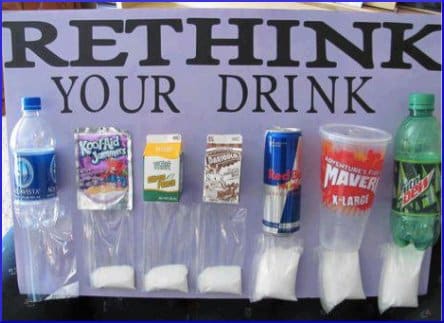
Even the most conscientious and well-meaning parent can feel like the fictional Alice going down the rabbit hole, when confronted with the plethora of advice intended to help kids avoid obesity. For instance, we all know that vegetables are good, but what if the only way that children can be induced to eat them is drowned in calorie-laden dipping sauce?
This story came from Pennsylvania State University, home of the Center for Childhood Obesity Research. Journalist Justin Caba quotes the words of the Center’s associate director, Jennifer Savage, Ph.D.:
Food and nutrition practitioners can help the staff at childcare centers, kindergartens, and elementary schools enhance children’s acceptance and consumption of vegetables by pairing vegetables with small portions of reduced-fat, herb-flavored dips during snack and meal times.
Well, of course, everyone likes flavorful foods. The sad part is, everybody’s taste buds, including those of children, seem to be so stunned by chemicals and hyperpalatable flavors engineered to seek the “bliss point,” nobody is capable of appreciating the taste of a fresh green bean anymore.
The format of the experiment is interesting. Six kinds of vegetables and five flavors of dipping sauce were tried out on 61 preschool-age children. Herb-flavored dip tasted better to the participants than plain dip. The other choices were pizza flavor, garlic, or ranch dressing.
In any case, the amount recommended by the Centers for Disease Control for a child is a cup and a half of veggies per day. Sure, veggies contain all kinds of nutrients, plus the extremely useful substance known as fiber. But even low-fat sauces contain calories, and kids tend to go to extremes, like using a tablespoon of dressing for each bite of vegetable. That corresponds to a lot of dipping sauce. Is the trade-off worth it?
Beware of these foods
Fortunately, no vegetables appear on the list entitled “10 Kids’ Foods Considered Healthy That Aren’t,” offered by the website Au Pair Care. But fruit-related items are well represented. There are 27 grams of sugar in a cup of apple juice — and guess what? That already exceeds the recommended daily amount of sugar for a child, regardless of what else she or he eats over the course of the day. Whole fresh fruit is great, of course, and fiber is a factor here, too.
Fruit “leather” and similar fruit-based snacks can be insidious, and pretty much amount to candy under another name. Do we want out children ingesting daily doses of the gelatin, artificial flavors and colors, sugar, and corn syrup that are blended into fruit snacks? Probably not. Applesauce seems like it should be a good bet, but it too may contain artificial color and superfluous sugar.
And sports drinks? Forget about it! For the thirst inspired by exercise, it’s so much better to substitute with water instead, and leave behind the sweetening and the additives. Whole milk is not recommended for children over the age of two. Older than that, what the American Academy of Pediatrics recommends is 1% milk. The yogurt whose marketing targets children is probably not a good bet either. The better choice is to get plain yogurt — organic, please — and mix in fresh fruit at home.
The other four
The remaining items on the list of 10 are breakfast cereal (which tends to be laced with huge amounts of sweeteners, along with artificial colors), granola bars, peanut butter, and — surprise! — fish sticks. Here is the indictment:
Most brands are full of artificial ingredients. Furthermore, even if you are baking them at home, they have been previously fried in oil, making them high in fat as well. They are also high in sodium and missing most of the nutrients you get from fresh fish.
The bottom line is:
[M]arketing and misinformation have made it difficult to know what the right food choices are for today’s children. Unfortunately, many of the foods parents have been trusting to be healthy and wholesome actually are not. Some of these may surprise and disappoint you.
Your responses and feedback are welcome!
Source: “Scientists Find The Only Way Kids Will Eat Their Veggies Is To Slather Them With Calories,” Medical Daily, 05/31/13
Source: “10 Kids’ Foods Considered Healthy That Aren’t,” AupairCare.net, 06/26/13
Image Rethink Your Drink.

 FAQs and Media Requests:
FAQs and Media Requests: 











